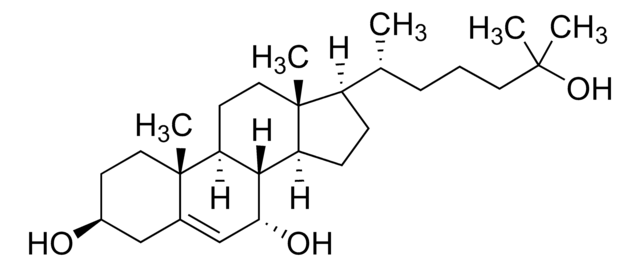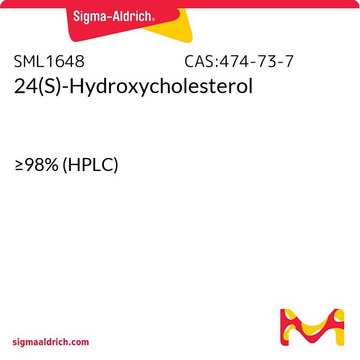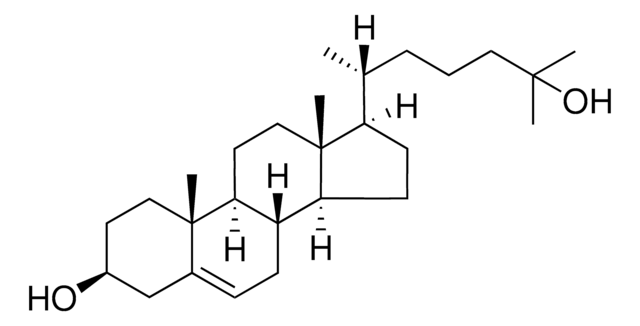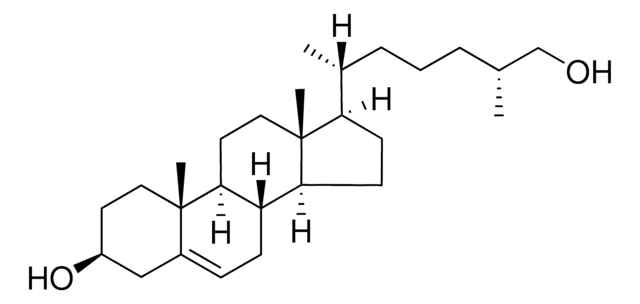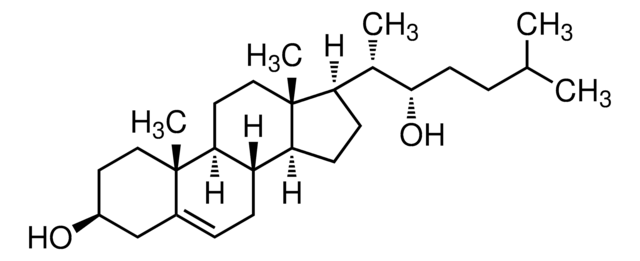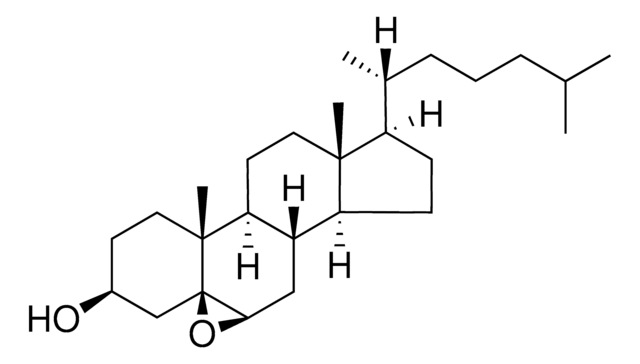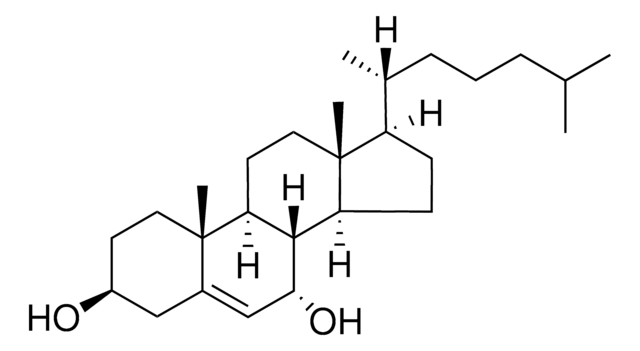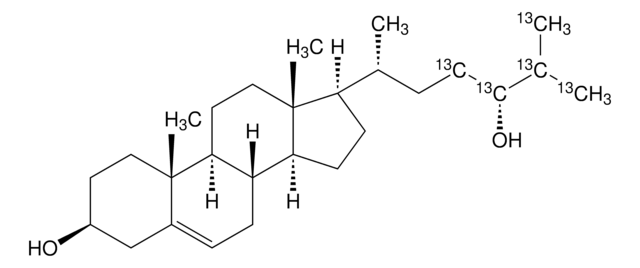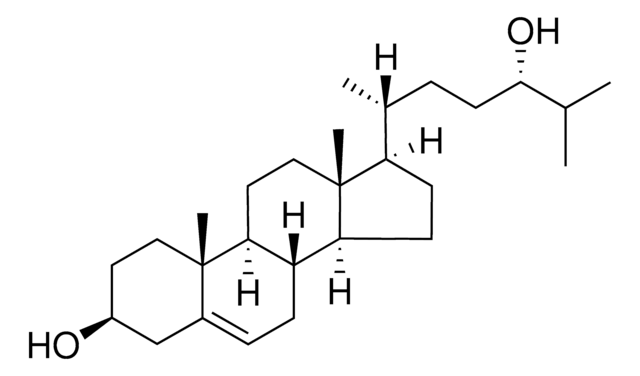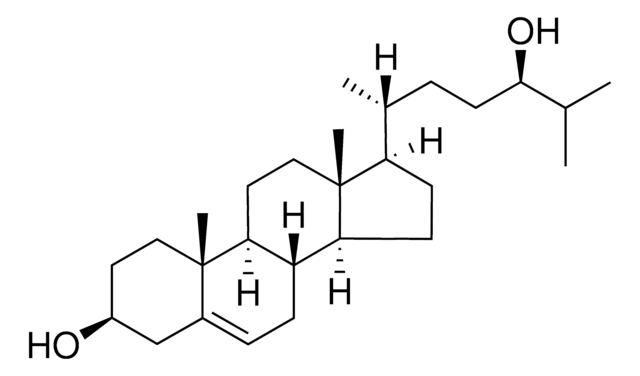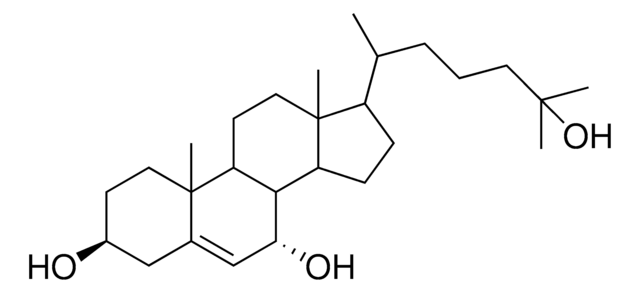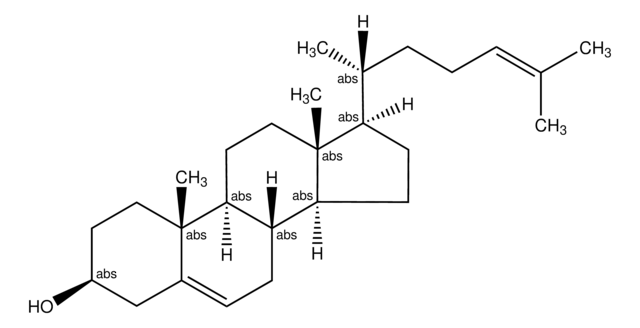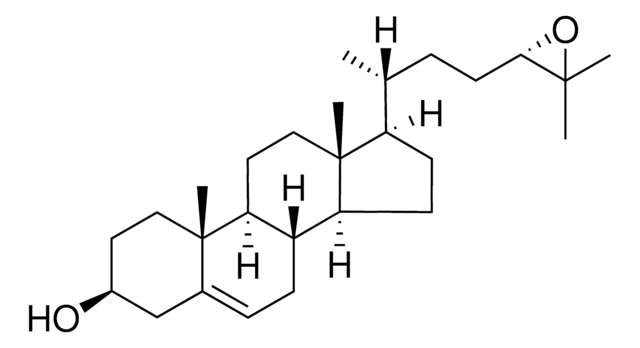H1015
25-Hydroxycholesterol
≥98%
Synonym(s):
5-Cholestene-3β,25-diol
About This Item
Recommended Products
biological source
synthetic (organic)
Assay
≥98%
form
powder
shipped in
ambient
storage temp.
room temp
SMILES string
[H][C@@]12[C@]([C@](CC[C@H](O)C3)(C)C3=CC2)([H])CC[C@@]4(C)[C@@]1([H])CC[C@]4([H])[C@]([H])(C)CCCC(C)(O)C
InChI
1S/C27H46O2/c1-18(7-6-14-25(2,3)29)22-10-11-23-21-9-8-19-17-20(28)12-15-26(19,4)24(21)13-16-27(22,23)5/h8,18,20-24,28-29H,6-7,9-17H2,1-5H3/t18-,20+,21+,22-,23+,24+,26+,27-/m1/s1
InChI key
INBGSXNNRGWLJU-ZHHJOTBYSA-N
Looking for similar products? Visit Product Comparison Guide
Application
Biochem/physiol Actions
Preparation Note
Storage Class Code
11 - Combustible Solids
WGK
WGK 3
Flash Point(F)
Not applicable
Flash Point(C)
Not applicable
Certificates of Analysis (COA)
Search for Certificates of Analysis (COA) by entering the products Lot/Batch Number. Lot and Batch Numbers can be found on a product’s label following the words ‘Lot’ or ‘Batch’.
Already Own This Product?
Find documentation for the products that you have recently purchased in the Document Library.
Customers Also Viewed
Articles
The amount of cholesterol that is synthesized in the liver is tightly regulated by dietary cholesterol levels. LDL receptors regulate the cellular transport of lipid rich low density lipoprotein (LDL) particles.
Our team of scientists has experience in all areas of research including Life Science, Material Science, Chemical Synthesis, Chromatography, Analytical and many others.
Contact Technical Service